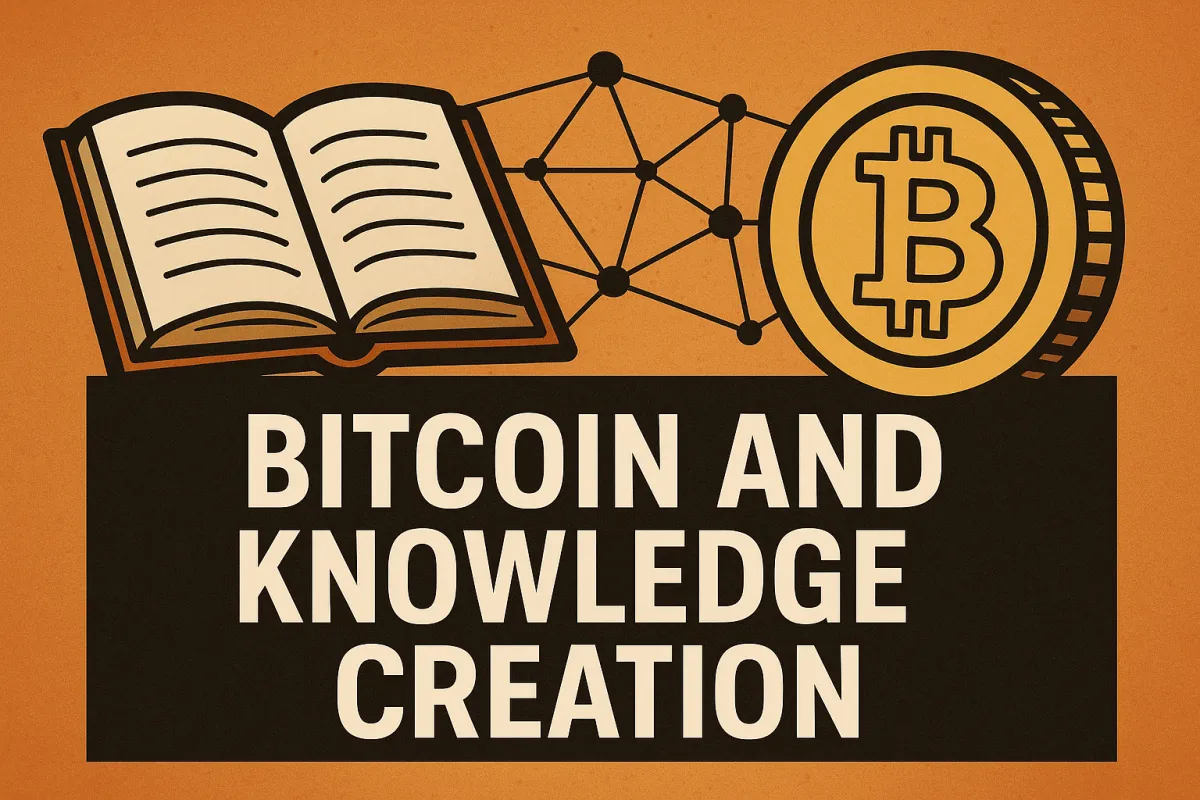
Bitcoin and Knowledge Creation: Decentralized Money, Decentralized Truth
Human progress has always depended on how we share knowledge. From the invention of language to the printing press to the internet, each leap in civilization has been driven by breakthroughs in how information is preserved and distributed.
Bitcoin is part of that story. It parallels the decentralization of knowledge — offering the same resilience, openness, and truth, but applied to money.
Knowledge as a Decentralized Network
For centuries, knowledge was centralized. Libraries guarded manuscripts. The Church controlled scripture. Kings and universities decided what counted as legitimate truth. Access was scarce, controlled, and vulnerable to destruction.
Then came decentralizing forces:
The Printing Press: Suddenly, books could be mass-produced and ideas spread beyond elite circles.
The Scientific Method: Knowledge advanced not by decree, but by peer review and replication.
The Internet: Billions gained access to information once locked in ivory towers.
Each shift removed gatekeepers and empowered individuals. Knowledge creation became more resilient because no single authority could control it.
Money as Knowledge
Money, like knowledge, is information. It communicates value across time and space. But for most of history, it has been centralized: kings debased coins, central banks inflated supply, governments decided who could and couldn’t use it.
Fiat money is as fragile as knowledge once was under authoritarian control. It can be censored, manipulated, and destroyed at will.
Bitcoin as Decentralized Knowledge
Bitcoin applies the same decentralizing principles that transformed knowledge:
Open Access: Anyone with an internet connection can participate.
Verification, Not Trust: Transactions are validated by consensus, like knowledge is verified by peer review.
Resilience: No single failure point can erase or censor the network.
Just as the internet made information unstoppable, Bitcoin makes value unstoppable.
Parallel Incentives
Knowledge creation thrives when incentives reward truth over propaganda. Science advances when experiments must be replicated, not merely believed.
Bitcoin thrives because it makes dishonesty costly. Attacks require massive energy, while cooperation is always more profitable. The result is a system that aligns incentives toward truth — the ledger is accurate because it must be.
Civilization’s Next Leap
The printing press unleashed the Renaissance. The internet unleashed a wave of global connectivity. Bitcoin is the next leap, decentralizing money the way knowledge was decentralized before it.
In both cases, the lesson is clear: truth is stronger when no one controls it.
The New Library of Value
Bitcoin is a library of value — open, incorruptible, and global. Just as humanity once broke free from the monopoly on knowledge, it is now breaking free from the monopoly on money.
Decentralized knowledge changed the course of civilization. Decentralized money will do the same.



